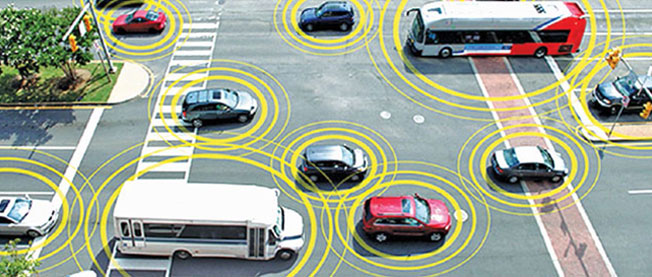By Sarah Reeves*
Kochi has emerged as a significant player in the public transport game since the inauguration of the Kochi Metro in 2017 and the proposal for an integrated and environmentally sustainable water metro, which will be launched in 2019. However, a major problem that is yet to be addressed is the lack of access to first and last mile public transport and associated feeder services. Kochi has an exponentially increasing private vehicle ownership because of an ever-strengthening economy. A door-to-door private commute is currently the most convenient way to get around the city, and is a major inhibitor to the effective functioning of the public transport system. The last/first mile conundrum is a global issue because we live in a society where speed and efficiency indicates excellence. Even though traffic remains a major obstacle to this, private vehicle is still preferred to inter-modal public transport. This phenomenon is known as the Last Mile Problem. The rapid transit solutions in Kochi are large scale with strong foundations for a modern, connected system. Connecting public transport systems, like the metro with the existing bus system, is imperative, but even if this is achieved, the final part of the journey continues to be a major inhibitor to getting private vehicles off the roads.
There are many ways to address the last/first mile connectivity gap, some of which are walking, auto rickshaws, e-rickshaws, online share taxis and buses. There are currently problems in all last/first mile options in the city.
Table 1: Potential Solutions to Close the Gap in Last/First Mile Public Transport
| Last/First Mile Mode | Current Problem | Solution |
| Walking | Pitiable state of the sidewalks | Construction of pedestrian and cycling pathways, more informative sign posts about metro/bus/water metro – Intelligent Transport Systems (ITS) |
| Rickshaws/E-rickshaws | Lack of regulation at the local level | Need for be a bottom-up approach to regulation of rickshaws – Unified Metropolitan Transportation Authority (UMTA)/ITS |
| Online Share Taxis | Limited integration into the broader public transport system | Contracts between Uber/Ola and Kochi Metro Rail Limited (KMRL)/bus associations – ITS |
| Buses | Lack of routes |
Unify public and private bus companies to fully integrate into the city other public transport modes – ITS
|
As online taxi services such as Ola and Uber will become more and more prolific in modern cities, policy makers and government bodies need to address the problems they pose. The other sectors need to acknowledge their role in the public transport sector of Kochi. KMRL has taken the first step to achieving this by forming a relationship between the Kochi Metro and online taxi aggregators in the city. These online taxi services have not effectively integrated into the public transport system and therefore, their role as last/first mile connecters is limited. The same goes for all other modes of last mile connectivity. Therefore, in the age of technology, when problems of congestion are likely to worsen, the answer is likely to be ITS, including the use of smart phone apps, route information and online payment methods. ITS applies information, data processing, communication and sensor technologies to vehicles, transport infrastructure and transport users to increase the effectiveness, environmental performance, safety, resilience and efficiency of the transport system (Ministry of Transport, New Zealand).
Figure 1: Implementation of ITS means that all vehicles will be equipped with GPS devices making real-time data a reality

Source: Geospatial World
Although, in theory, ITS is the solution to all gaps in the public transport system, it must be acknowledged that all cities are complex and unique, and a ‘one-size-fits-all model’ will prove to be ineffective in the long term. In India, the municipal corporations have an understanding of their specific transport sector but they do not have the power to implement changes once they reach a certain scale. Therefore, there needs to be a change in governance power dynamics in order for ITS to become a reality in Kochi, considering this is the best way to address the last mile conundrum.
https://vimeo.com/243966249 - A video from Streetfilms.org showing how bike lanes function in Brooklyn


